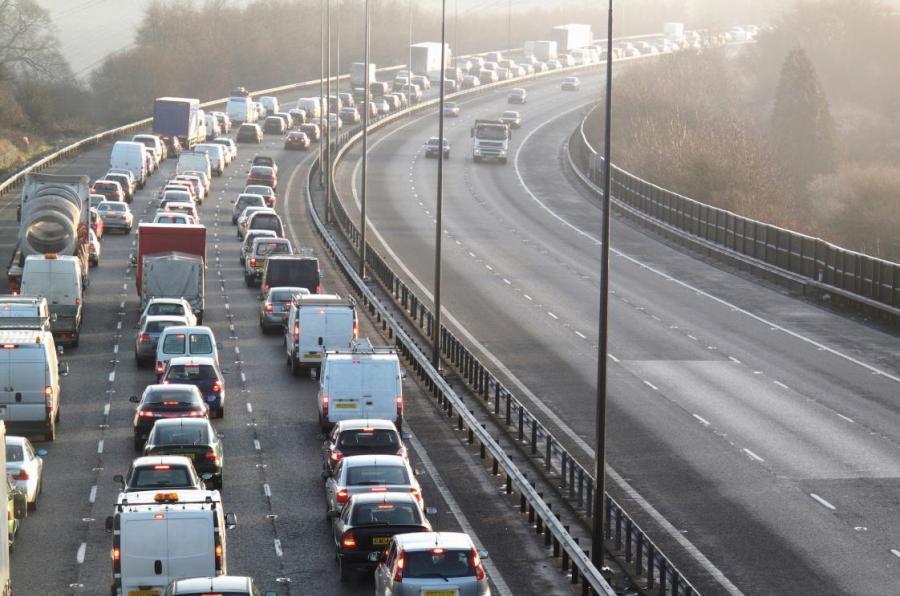Members of Parliament have pledged to start “a national debate” about the introduction of pay-per-mile road charging and other road pricing schemes.
The cross-party House of Commons Transport Select Committee will launch an official investigation into road pricing early next year and says that it wants “drivers and non-drivers” to start discussing the matter ahead of this.
MPs haven't looking into the prospect of a national road pricing scheme for more than a decade, but the Committee now wants to consider the prospect again. This is because, it says, there's a need to decarbonise the transport network, tackle congestion and “encourage modal shift to alternative forms of transport” where appropriate.
It also notes that the £40 billion annual income from Fuel Duty and Vehicle Excise Duty (road tax) is likely to decline sharply – or end entirely – if government goals to make road transport carbon-free within two decades come to fruition.
The Committee said the investigation will consider the positive and negative aspects of road pricing, including economic, environmental and social impacts. It will study existing schemes at local and national levels in the UK and overseas. It notes that the concept of road pricing isn't limited to tolls but could include congestion charges, an HGV levy, workplace parking charges and the introduction of clean air zones.
Labour MP Lilian Greenwood, chair of the Transport Committee and shadow transport secretary, said: “It’s been almost ten years since the last real discussion of national road pricing. In that time, we have become much more aware of the dangers of air pollution and congestion. Parliament declared a climate emergency in May, and local councils have begun to do the same. This requires a serious response, including rethinking how we manage our road network.
“We cannot ignore the looming fiscal black hole. We need to ask how we will pay for roads in the future, and in answering that question, we have an opportunity for a much wider debate about our use of road space, cutting carbon emissions, tackling congestion, modal shift and how we prioritise active travel.”
Greenwood insisted that the prospect of pay-per-mile road charging isn't “about pricing drivers off the road,” adding: “It’s about making sure that as many people as possible have a say in future plans so that we can manage the changes to come. The Transport Committee wants to kick-start this conversation.”









Join the debate
Add your comment
Bojo
Did I not hear our " Charlatan in Chief / Prime Mincer" state a few weeks ago one of his aims was to reduce the cost of living for us poor Plebians. Good start Bojo. I suspect ministerial cars and various other "essential " users will be exempt from any scheme. Added bonus , as nobody else will be able to afford the road charging additional space will be available on the roads so as not to hinder the speedy progress of our betters in much deserved free motors. Sounds like our wise ones have been too engrossed reading George Orwell ,and picked up some ideas to make life better for themselves.
Item 1: They are selling this
Item 1: They are selling this wrong
In the city I live in there is physically not enough space for the level of traffic for many hours of the day. The same is probably true for your area too and in cities we can’t build our way out of congestion.
I can see this congestion by looking at Google maps, this is however the route of the solution
The logical solution would be to reduce the numbers of vehicles on these heavily travelled routes by using demand management pricing.
Essentially the price is increased on a road until the traffic flow is reduced to the roads carrying capacity. Your cost would depend on the size of your vehicle and how long ago you had booked the journey.
Of course this would represent only the stick element of the policy and would if implemented as described essentially result in free flowing roads for the wealthy.
Carrot end of the policy is that those same tools Google maps, Uber should facilitate relatively simple multi-modal and car sharing journeys. If only a sizable minority of people car shared or agglomerated their journeys into minibuses journey times for all would decrease greatly.
These people would be rewarded by sharing out the road charge. In the smart phone network we also basically have the infrastructure to run such a road charging system.
However the carrot will not and has not worked on its own because carpooling or shared mini-bus trips require additional faff and organisation and the benefits are felt by the people not participating.
Road charging is thus needed to force behaviour that drives the benefits.
If road charging were capped at the actual cost of maintaining the roads plus the negative externalities of driving it is likely that only people driving at rush hour would even be charged.
Drive an electric car in the evening and you probably won’t pay a penny.
@ Torque Stear
....we dont have any of these problems out here in the countryside.
However the central London 'Bubble' mentality of politicians will still hammer us as well.....you just know it.
Travelling 40,000 miles a year for work
Travelling 40,000 miles a year for work, including sat in the rush hours on the M25, first thing I'm going to say is obviously no... Then I have to pay for parking at work, and then sit in traffic all the way home again.
Money money money, gov can stuff it!